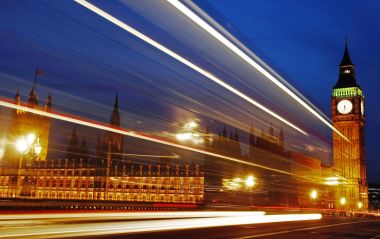2015 Election: How Christians can get involved

Amid debate about the Church's right to comment on political issues, Christians are being urged to take an active role in politics, particularly in the run-up to the General Election.
Most evangelical Christians are committed to voting in the election, according to results of a new study by the Evangelical Alliance. Of the 2,000 evangelical Christians surveyed, 94 per cent said they were likely to vote, and of these, 80 per cent they would definitely vote.
But Lyndon Bowring, executive chairman of CARE, is encouraging Christians to do more than put a cross by a name. Bucking the trend of disillusionment with the state of politics in the UK, Bowring argues that Christians should exercise grace, support their MP and help to inspire young people to take an interest in politics.
"How many churches invite their local MP to come, whatever his beliefs are?" asks Bowring in an interview with Christian Today. "How many of us know the names of the children of our MP? Family life is tough for a committed politician. Offer to pray for him."
Prayer is one way to respond, but if you're looking for something more concrete, holding a hustings at your church may be another answer. It provides an opportunity to hear from all the candidates standing in the constituency and learn more about their policies and principles. It also demonstrates that church is interested in community life, and that churches can be used as a place for public debate – and not just on the issues that Christians are thought to care about.
Chuches are now the most common place for these face-to-face meetings to take place. In the run up to the 2010 General Election, CARE's site registered nearly 300 hustings held across the country, attracting an estimated 40,000 people.
The run-up to the election is a frenzy of political activity, but what about long-term commitment? Churches are usually pretty good at encouraging the development of worship leaders and those with pastoral gifts, but it's rare to find political engagement promoted among Christians, something that the Show Up campaign seeks to challenge.
Although Bowring, who is a former minister, acknowledges the pressures on church leaders, he asks: "Do you encourage your local church members to get involved as a school governor or being a local councillor, or being an MP?" The fear of losing a great home group leader should not stop churches from encouraging those with political interests and gifts, he argues.
When thinking about the future of British politics, it's clear that the engagement of young people has to be addressed. Election data repeatedly shows that those aged 18-34 are the least likely to vote, and it may be that the Church isn't helping to alter that trend.
Bowring says: "Very rarely... have I ever heard a preacher in the pulpit say young people must look to the assemblies, look to the media, all the institutions of our national life [and say] 'Get in there!'."
Suggesting that those involved in youth and student work give political involvement a higher profile, he says: "It's right that evangelism should be top of the agenda, but not far behind is working out our salvation with fear and trembling and being effective light and effective salt."
He adds that it's important to make discussions issues-based, rather than party-political, noting that young people are more likely to join a movement than an organisation.
But when it comes to campaigning on issues that matter to them, young people may be better equipped than most of those who do turn out to vote.
"Young people have a significant role to play," says Essie Mac Eyeson, a public affairs officer at CARE. "We've grown up in a society where we have social media, we're so used to networking and engaging... That's what policy, and politics and campaigning is all about.
"They [young people] may not recognise it, but when they post... a petition [or] share an article about something that's going on around the world, that is engaging," Eyeson added.
Converting tweets to votes or party membership is where the challenge really lies, since the democratic system relies on such formalities.
CARE's engaGE15 election website has information on how to organise and host hustings, and on voting records for every MP on issues such as end of life care and same-sex marriage.











